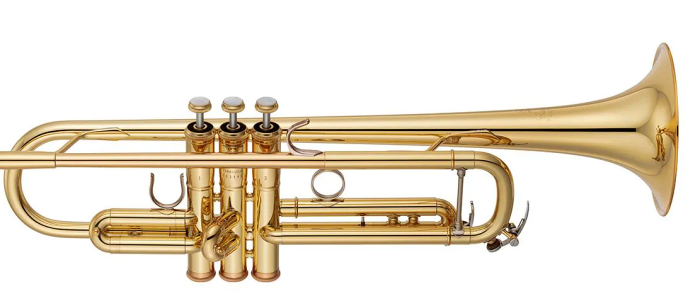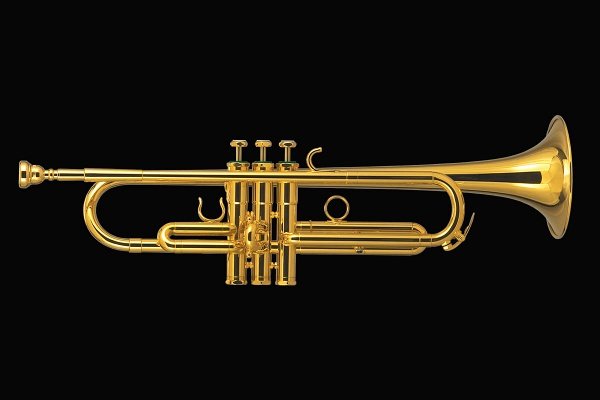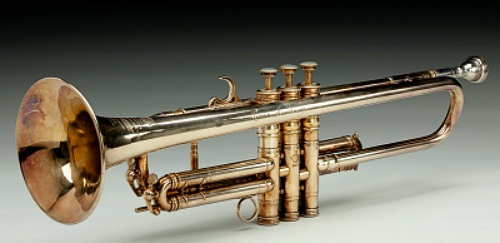When people ask “What’s are the best trumpet brands?”. It’s just like asking, “What’s the best car brand?”. The answer is “it depends”. Great, that was as helpful as a screen door on a submarine. Well, maybe not that bad. The thing is, the “best” of anything depends on one important thing. You.
Table of Contents
A better question might be:
Which Brand of Trumpet is Better?
For you that is. Let’s start by asking yourself some questions:
- What are you going to use the trumpet for?
- Are you an aspiring high school player?
- Are you just starting out playing a student trumpet?
- Are you a professional player that makes a living playing the trumpet?
- Are you a comeback trumpet player?
- The above are all very different use cases. Where a given professional trumpet that may be “Best” if you are a professional trumpeter, that same “best trumpet” may not be right if you are an intermediate player in middle school.
- What is your budget? This is always a concern as well as how long you plan on keeping this trumpet.
- If you have a vault in your mansion filled to the roof with gold coins your budget is different than a high school player that works 4 hours after school to save up for their first bb trumpet.
- What are your aspirations for your trumpet playing?
- If you have only been playing for a few years and have a developed a love for the trumpet, you may choose to invest in a professional trumpet that will last for the rest of your playing career.
- If you are a comeback player, you may have no intention of playing professionally, but have the means to invest in a higher quality instrument than you had when you were younger. This can increase your enjoyment of your trumpet playing.
- If you make a living playing trumpet, you already know what brand of trumpet you want and need so feel free to skip straight to the Professional Trumpet reviews.
The “Best Professional Trumpet” may just be the highest quality trumpet that fits your budget while matching how you plan to use the trumpet now and into the future.
What Is A Professional Trumpet?
Before we can talk about what are “the Best Professional Trumpet brands”, we need to define what the heck a professional trumpet is. In general, a professional trumpet has features and options similar to most other trumpets. It’ll look very similar to an intermediate trumpet and even a beginner trumpet. In fact, a brand new $300 Jean Paul student trumpet is a beautiful instrument and looks as good as a brand new $3,500 Bach Strad trumpet. And even a $10,000 Monette trumpet.
So what gives? The differences may be subtle but make a dramatic difference in the playability and sound quality. All trumpets are made from yellow brass. How they are designed and made are the biggest factors that separate a professional trumpet from an inexpensive, mass produced trumpet. The bell shape/material, tuning slide, leadpipe, and valves are designed and built with a level of quality and materials that justify their higher cost.
The tolerances between the components, the quality of materials, and the fit and finish in a professional instrument are exceptional. As you would expect them to be for that much money right? For example, the valve cluster may be built with nickel silver for better wear resistance and tonal quality. Making a lightweight valve cluster lets the trumpet vibrate more than a heavier built valve cluster. This lightweight design makes for a more responsive horn.
The bell is likely hand annealed by craftsmen that have been doing this work for decades. They spend hours hammering the brass to align the molecules in the brass so it vibrates consistently. While most trumpet brand makers use a yellow brass bell, you can get one with rose or gold brass for a warmer sound. The brass lead pipe is also usually made of yellow brass. Professional horns may have one made of rose brass. Beyond the materials, the lead pipe and main tuning slide designs can create a wide range of response for the horn. The research and development to create a free blowing, high-quality instrument in all registers is extensive. Even if you are not a professional or advanced trumpet player yet, look for qualities and features that affect the sound quality, upper register richness, and sound projection.
What To Look For In A Professional Trumpet

The main things to look for in this case are the bell design, leadpipe design, tuning slide design, and finish. Things to think about, you need some resistance to blow against so getting the largest bore horn may not be right for you. If you are playing a “lead” trumpet mouthpiece, they often have tighter backbores to help you in the upper register. This gives you something to “blow against”. Different types of mouthpieces (shallow to deeper cup, narrow backbore, etc.) will give a different sound to your “perfect trumpet” so consider that in your choice.
Next, the leadpipe of the trumpet has a big influence in how fast the air moves through the horn and will feel different from trumpet to trumpet. The leadpipe design combined with the main tuning slide turn the buzzing you make with your embouchure in the mouthpiece into a standing wave which is changed in pitch by the valves and amplified by the bell.
This over simplification of how a trumpet works says the leadpipe and main tuning slide play a critical role in the sound a trumpet makes. Less bracing on the main tuning slide makes the horn more responsive as it vibrates more freely. This may be important for you if you play lead trumpet. See the reviews as an example of a freer leadpipe design. Bach Stradivarius 190 models
Valve slides are another feature of the best trumpet brands. Professional level horns have a 1st and 3rd valve slide which helps with intonation. Even a trumpet for beginners may have a 3rd valve slide. The difference is the quality of the movement, how perfectly aligned the slide is, and the pitch changes it creates. Note that a spit valve on the 3rd slide is a nice feature, but even some professional horns don’t have one. Case in point, the ubiquitous “Bach Strad” doesn’t have one.
Another design element is how the valve cluster is designed and built. For example, a lightweight valve cluster is made so it vibrates more. Lastly, the taper (how fast the bell opens) influences the timbre of your sound. A slower opening bell (taper) will project a bit more (see the #43 Bach Stradivarius bell at the above link as an example) which is something you’ll want for jazz or lead roles. Darker sounding bells such as the Schilke 5 (verses the 1) and the 37 Bach trumpet bell are what you want if you play more orchestra or symphony work. Or if you just like the warmer sound for jazz playing.
Lastly, the finish. You’ll find the two most common ones are a silver-plated finish and a gold lacquer finish. Gold in that the brass is polished to perfection and looks gold when laid on the horn. Some feel that a silver one gives a slightly brighter sound. The brighter tone is because the added weight of the silver plating. Lacquer finishes tend to be thicker than the silver plating so it dampens the vibrations a bit more giving a warm sound. Yamaha wrote an article on woodwind and brass finishes effect on tone.
How Are The Best Trumpet Brands Made?
The bells of professional level trumpets are designed with different shapes, tapers, and wall thickness. These all affect the quality and projection of your sound. The way the brass is formed or annealed (hardened), will also affect how the bell resonates. The best trumpet brands are handcrafted by artisans that use techniques refined over decades. Some brands have used the same trumpet bell designs for centuries.

The leadpipe design is important as it shapes the sound coming from your mouthpiece. Some are designed to improve upper register “slotting” and tone. The main tuning slide design varies from a “D” shape to a “C” shape. One is not better than the other as the leadpipe, main tuning slide, and even the bracing are designed together to work together to produce the desired sound and playability. There is also a reverse lead pipe. Instead of the tuning slide going into the lead pipe, the lead pipe goes into the tuning slide. This design is meant to reduce the turbulence created by the gaps of the pipe surfaces. This helps in a freer blowing horn for more experienced players.
For example, Bach lines up the seam of the bell with the bracing to let the rest of the bell vibrate more freely. The seam of the bell is the weld that runs the length of the bell. As it is a different material than the bell itself, it will vibrate differently. By welding the braces to this seam, it lets the rest of the bell vibrate more consistently.
The amount of bracing on some trumpet makers on their main tuning slide affects the sound. Less bracing allows the horn to vibrate more giving the trumpet a more responsive feel. The design, construction, and materials (such as rose brass), affect the sound quality, projection, and how easy the trumpet is to play. You’ll notice this in the upper register when you increase your air velocity. You’ll also hear this in the middle of the staff where you spend most of your time. It’s a delicate balance to perfect the free air flow while providing the right amount of resistance.
What Are The Most Popular Brands of Trumpets?
Okay, we know understand what a professional trumpet is and what makes them different. So what’s the most popular trumpet brand? As we talked about first, the better question to ask is, “which professional trumpet is best for me?” The well-known brass instrument companies all have professional trumpet models. The most well known brand names that have been making high-quality trumpets for a long time are the Yamaha Company, Vincent Bach, Schilke, and Getzen. Yes, there are tons of smaller companies that makes custom and high-quality products. These are companies like Monette, Adams, B&S, Kanstul, etc. For this article, we will focus on the “Big 4” Trumpet manufacturers that have been making musical instruments for a long time. There are lots of beginner trumpet makers such as Jean Paul, Carol Brass, and Cecilio that make high quality brass instruments. We are focusing on professional level trumpet brands below.
Yamaha Corporation

The Yamaha company was started back in 1887 by Torakusu Yamaha when he repaired and then created the first reed organ that was made in Japan. Yamaha makes all types of musical instruments. Yamaha’s entry into the trumpet world began in 1966 with the Yamaha YTR-1 which was their first brass musical instrument. Yamaha is highly regarded for the breadth of professional trumpet models in their Xeno series B-flat trumpet line. All Yamaha professional trumpets feature Monel piston valves. A Yamaha trumpet is considered one of the most consistent in the quality of workmanship. The attention to detail is incredibly high as is their finish. Each professional trumpet is tested multiple times before leaving their factory.
Many student trumpet players may have had their first introduction to Yamaha trumpets with the Yamaha YTR 2330 which is a excellent Intermediate trumpet. Moving up the line you’ll find an extensive line of Yamaha Xeno professional horns. For example, Wayne Bergeron the highly regarded professional trumpet player is one of their performing artists. He co-designed the YTR08335LA trumpet and the YFH-831G Flugelhorn. The YTR-8335 is part of their Xeno series of professional trumpets. The only line above this is their YTR-9335 line which are custom trumpets for true professional players. All Yamaha professional trumpets carry a 5-year warranty.
Vincent Bach Company

The Vincent Bach company is one of the oldest brass instrument companies around. It started with Vincent Shrotenbach who was a trumpet player and was having trouble finding a trumpet mouthpiece. In 1918, he purchased a lathe to make trumpet mouthpieces. He started making trumpets in 1924. His trumpets were so highly regarded that professional musicians started calling them the “Stradivarius” of trumpets. This is in reference to the “Stradivarius” violin which is renowned as the finest violin created.
To this day, the Bach Stradivarius professional B-flat trumpet is one of the most highly regarded trumpets. They are so well known that even the “thunk” that the valves make when released are instantly recognizable. The “Bach Strad” has a unique sound with their most popular #37 bell design. Older “Bach Strad” trumpets that were made in their Mount Vernon and even their Elkhart factories command high prices when resold. Several of our band members have horns from these that were built several decades ago. There are many refinishing shops that remake them into better than new horns.
For a Bach factory tour, please see the video below:
The Model 180-37 is arguably the number one, best selling professional trumpet in the world. This professional trumpet is most commonly referred to as a “Bach Stradivarius Trumpet 37”. Even though the “Stradivarius” name applies to many Bach Professional trumpet models, there are many different models. The “180” is the model and the “37” is the type of bell. They are a versatile instrument that does a lot of different things well. One of the current top professional trumpet players Louis Dowdeswell played a Bach Stradivarius model 43G on his recording of Frozen’s “Let It Go” (see below). It features a #43 Gold brass bell and a special gold-plated finish.
The newly released model 190-37 is their 50th Anniversary model. They are designed and built like the early models from Elkhart Indiana starting back in 1965. It features a valve cluster made of two different types of metal: nickel and yellow brass, a one-piece bell, a steel bell ring, brass and nylon valve guides, and hand lapped Monel pistons. They are building these 50th Anniversary models like they did back in the good old days. The best thing is the lacquer finishes of today are much stronger.
It’s interesting to note that the Vincent Bach company is part of the Conn & Selmer company that consists of brands such as King (known for band instruments of all kind), Ludwig (great drums), Selmer (known for saxophones and other woodwinds), and Armstrong (known for flutes and piccolos). All Vincent Bach professional trumpets carry a 5-year warranty.
The Getzen Company, Inc.

Was started in 1938 by T.J. Getzen. He worked at Holton, another widely known brass musical instrument company for almost 10 years. He started in Wisconsin repairing band instruments. Their first instrument was a trombone in 1946 with trumpets and cornets starting in 1947. These instruments gained popularity as student horns. In 1962, the world famous “Doc” Severinsen worked with Getzen to design and build a line of professional trumpets and flugelhorns. They were branded the 900 Eterna
Was started in 1938 by T.J. Getzen. He worked at Holton, another widely known brass musical instrument company for almost 10 years. He started in Wisconsin repairing band instruments. Their first instrument was a trombone in 1946 with trumpets and cornets starting in 1947. These instruments gained popularity as student horns.
In 1962, the world famous “Doc” Severinsen worked with Getzen to design and build a line of professional trumpets and flugelhorns. They were branded the 900 Eterna Severinsen. In 2007 they relaunched their famous Eterna line as the 900 Eterna to the same specifications that the “Doc” Severinsen models had.
The Getzen 900 Eterna trumpet was known for it’s easy blowing design with a 0.460 inch bore. One feature prominent to these horns is the use of button type spit valves or Amado. The reason they chose this design over the common level type is that it creates less turbulence as air goes past the hole where the spit drains out. This is the kind of attention to detail that Getzen is known for. While much smaller than the two big companies above, the quality and designs are still world class. All Getzen trumpets come with a lifetime warranty on their valves and a 5 year overall warranty. Their Custom series professional trumpets carry a lifetime warranty.
Schilke Music Products

Schilke Music Products was started by Renold Schilke back in 1956 while playing in the Chicago Symphony. He refined his designs over 30 years focusing on trumpets, cornets, and brass mouthpieces. His designs are legendary as he found and fixed some 14 faults with the b-flat trumpet. So much so that in the 1960’s, the Yamaha Corporation hired Renold as a consultant to design both their professional level brass instrument line and their manufacturing processes. This went on until Renold passed away in 1982.
Renold Schilke is known for his patent of the tunable trumpet bell. He transferred the patent to Yamaha as he felt they were the only ones that had the resources and quality. Many of the Yamaha’s professional trumpet line were almost exactly the same as Schilke professional trumpets. The B1 professional trumpet was Renold’s favorite which he used as the foundation for other Schilke trumpet remains their most popular model. It has a reverse leadpipe and features no bracing on the main tuning slide. It’s identical to the B5 which has a medium bell. The B5 has a bit more resistance than the B1 which gives it a slightly darker sound. Some compare the B5 to the Bach 37 bell.
The Schilke P5-4 is the “Reference Standard” Piccolo trumpet. It is the Piccolo trumpet that all others aspire to be. The two even use the same mouthpiece labeling system. Many (if not all) trumpet players know of Schilke mouthpieces and the legendary (infamous?) 14A4A. See our review of it and the Yamaha 14A4a in our “Best Trumpet Mouthpiece” post. Schilke is now family owned and still based in Illinois. Their craftsmanship and designs remain legendary.
Best Trumpet Brands: Which one?
So after all this, which is the best trumpet brand? The answer is still “it depends”. But now you understand now why. The professional level trumpets made by these four companies have the highest quality designs, manufacturing techniques, features, and materials. All feature Monel pistons (except the Getzen). All use hand processes to create each component of the trumpet to exacting standards. All have artisans that hand craft each part of the trumpet.
All of these brands quality test and tune each trumpet before it leaves the factory. All have decades of experience designing and building the best trumpet they can make. Most notable, all the professional level trumpets above are “ML” bore size (0.459 inches) trumpets except the Getzen Eterna which has a bore size of 0.460 inches. If their “stock” professional trumpets aren’t good enough for you, they all have custom lines above these that were made in collaboration with well known professionals.
If money is no object, Yamaha made a trumpet out of titanium which costs some $125,00. Back to the question at the start of all this. Which is the best professional level trumpet brand? The short answer is, they are all the “Best”. The top rated professional trumpets models from these companies are the best trumpets they have made for decades. They have all been making brass instruments for decades with designs and artisans that are the best they can be. They all make an excellent instrument. That means, you can’t go wrong choosing the perfect instrument from any of these brands. Now, which model of Bach, Yamaha, Schilke, or Getzen is Best for you? That’s a whole different question that we explore in our post “What is The Best Professional Trumpet?“. Click the link to continue your quest.
As always, thanks for playing along !


